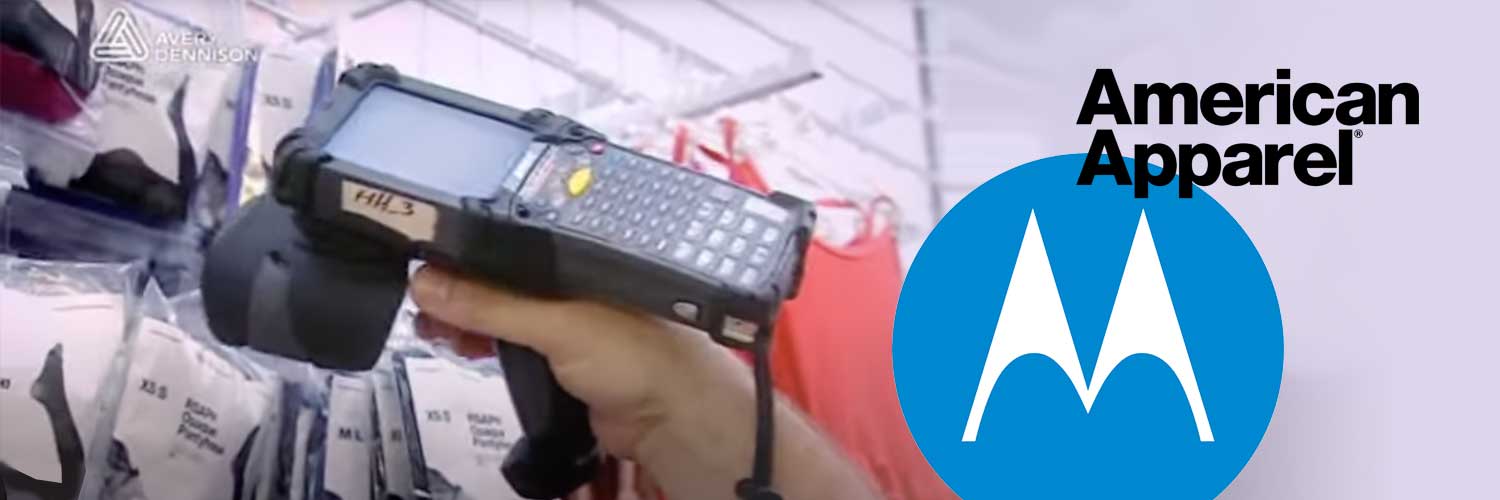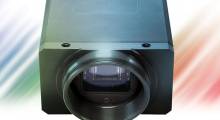American Apparel retail stores operate boutique-style, stocking only one item of each style, color and size on the floor at any time. Inventory turns over quickly in the apparel business, and with more than 26,000 SKU items to manage, store staff constantly battled to keep inventory counts 100% accurate and the sales floor 100% stocked.
The effort was time-and-labor intensive and expensive. But the cost of inventory errors and stocking delays was even higher – lost sales and disappointed customers.
American Apparel was looking for a smarter way to meet their goals and, from what they had learned, item-level RFID looked like precisely the solution they wanted.
Given the control the company has over its own manufacturing, distribution and retail operations, the plan was to reap the benefits of RFID not only on the retail floor, but throughout its closed loop supply chain.
But the first step would be testing the capabilities of RFID for accuracy, performance and adaptability to their business processes.
THE CHALLENGE
Improve business processes and reduce lost sales attributable to out-of-stocks
American Apparel is a manufacturer, distributor, and retailer of branded fashion apparel based in Los Angeles. The company started in 1989 as a wholesaler of t-shirts and opened its first retail outlets in 2003. American Apparel currently operates over 285 retail stores in 20 countries and is still growing.
All of American Apparel’s products are manufactured in the United States; its wholesale business supplies its cotton-based casual wear to distributors and screen printers.
The company is a vertically integrated operation and conducts its own knitting, dying, cutting and sewing, and design out of its headquarters in downtown Los Angeles. American Apparel’s young, metropolitan customers are very loyal to the brand.
As a fast-growing manufacturer, distributor and retailer serving young, urbanite consumers, American Apparel is in an excellent position to take full advantage of the benefits of an integrated item-level RFID inventory control process.
The company prides itself on a commitment to use technology to advance the business process and was eager to test the capabilities of RFID with four clear goals for process improvements:
-
- Increased stock visibility
- Improved accuracy/reliability of inventory countsDecreased labor costs and human errors associated with inventory
- Sales floor stock levels maintained at virtually 100%
- Reduction of internal shrink by over 55%
THE SOLUTION
The right location and the right partners to test the potential of item-level RFID
American Apparel gave careful consideration to its choice of store for the pilot. They were looking for a store that had average sales and a dedicated staff that would embrace the technology and a new process for inventory management.
In addition, they wanted a location with good traffic flow that was centrally located to other area stores, to facilitate a regional roll-out if the single store pilot proved successful. Ultimately, the store chosen was the Columbia University area store in New York City, which also serves as the returns center for all the American Apparel New York City stores.
Equal consideration was given to the technology partners who would support the pilot. To give item- level RFID a legitimate test in a real-world retail environment, American Apparel wanted to start with proven and universally-deployed hardware and software.
Based on their market leadership and technology innovation, American Apparel initially chose Motorola MC9090-G RFID handheld readers for the pilot and have subsequently moved to the more retail sales floor-centric MC3190-Z handheld RFID readers and supports cycle counting and search/find Geiger counter use cases.
Motorola FX7400 fixed RFID readers were deployed to support receiving, transfers, dynamic fill list, point of sale and encoding use cases in the backroom and sales floor.
The retailer is using tags from Avery Dennison’s Retail Information Services and LSIS and Xterprise’s Clarity ARS application which leverages Microsoft’s BizTalk RFID middleware.
The Clarity application framework and ARS application create value for retailers with ease of install, ease of use, real-time inventory capability and back end integration providing unmatched inventory accuracy and accountability.
The initial deployment of American Apparel’s pilot system placed RFID tags on each item of clothing and merchandise within American Apparel’s Columbia University area store in New York City. As the tags were affixed to product, the tags were associated with the particular SKU in the TrueVUE software platform.
From then on, mobile and fixed RFID readers were used by store associates to stock, inventory and replenish its 40,000 piece pilot store inventory. Fixed and mobile RFID readers were then used by store personnel to check inventory on a real-time basis.
Article topics
Email Sign Up
















